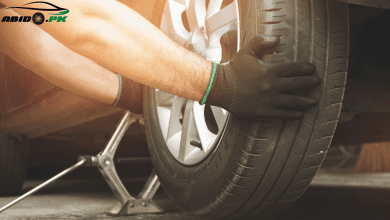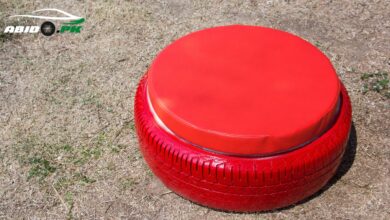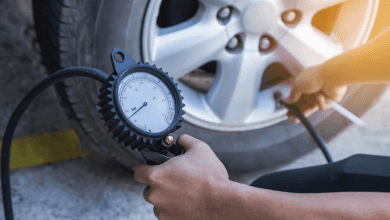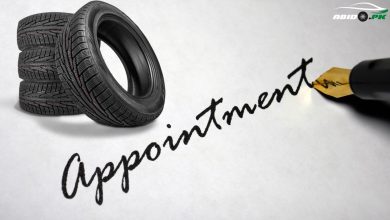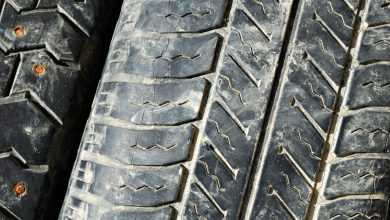How to Check Tyre Manufacturing Date
Tyre manufacturing date is the date on which the tyre was produced. This information can usually be found on the sidewall of the tyre. The tyre manufacturing date is typically represented by a series of numbers and letters that indicate the week and year of production.
It is important to know the manufacturing date of a tyre because tyres have a limited lifespan and need to be replaced after a certain amount of time. As a general rule, it is recommended to replace tyres that are more than six years old, regardless of the amount of tread remaining. However, this can vary depending on the specific conditions in which the tyre is used and the manufacturer’s recommendations.
Tyre Manufacturing Date refers to the date that the tyre was produced by the manufacturer. This information is generally included on the tyre’s sidewall, in the form of a Department of Transportation (DOT) code.

There are a few different ways to check the manufacturing date of a tire. Here are some steps you can follow:
How to Find Tyre Manufacturing Date
- Look for the tyre’s Department of Transportation (DOT) code, which is a series of numbers and letters that appears on the sidewall of the tyre. The last four digits of the DOT code represent the tyre’s manufacturing date. The first two digits represent the week of the year, and the last two digits represent the year. For example, if the last four digits of the DOT code are “2302,” the tyre was manufactured in the 23rd week of 2002.
- Check the tyre’s sidewall for other markings that may indicate its manufacturing date. Some tyre manufacturers include this information in the form of a code that includes letters and numbers, or in the form of a barcode.
- Contact the tyre manufacturer directly and ask for the manufacturing date of the tyre. You may need to provide the tyre’s DOT code or other identifying information.
Tyres do not have an expiration date, per se, but they do have a recommended service life, which is the length of time that the tyre manufacturer expects the tyre to be usable under normal driving conditions. The recommended service life of a tyre is typically between 6 and 10 years, depending on the tyre and the conditions it is subjected to. Here I made a separate category for Tyre Reviews.
To check the recommended service life of a tyre, you can refer to the tyre’s sidewall or consult the tyre manufacturer. The sidewall of the tyre may include a code or markings that indicate the tyre’s service life. Alternatively, you can contact the tyre manufacturer directly and provide the tyre’s DOT code or other identifying information to ask about the recommended service life.
It’s important to note that the recommended service life is just a guideline, and the actual lifespan of a tyre will depend on how it is used and maintained. Factors such as the type of driving the tyre is subjected to, the load it carries, and the inflation pressure can all affect the tyre’s service life. To ensure the longest possible service life for your tyres, it’s important to follow the manufacturer’s recommendations for care and maintenance, including proper inflation and rotation, and use the tyre within its load-carrying capacity.
Does tyre have expiry date?
Tyres do not have an expiration date, per se, but they do have a recommended service life, which is the length of time that the tyre manufacturer expects the tyre to be usable under normal driving conditions. The recommended service life of a tyre is typically between 6 and 10 years, depending on the tyre and the conditions it is subjected to.
To check the recommended service life of a tyre, you can refer to the tyre’s sidewall or consult the tyre manufacturer. The sidewall of the tyre may include a code or markings that indicate the tyre’s service life. Alternatively, you can contact the tyre manufacturer directly and provide the tyre’s DOT code or other identifying information to ask about the recommended service life.
It’s important to note that the recommended service life is just a guideline, and the actual lifespan of a tyre will depend on how it is used and maintained. Factors such as the type of driving the tyre is subjected to, the load it carries, and the inflation pressure can all affect the tyre’s service life. To ensure the longest possible service life for your tyres, it’s important to follow the manufacturer’s recommendations for care and maintenance, including proper inflation and rotation, as well as using the tyre within its load-carrying capacity.
Are 5 year old tyres OK?
The age of a tyre is not necessarily a determining factor in its condition or safety. The service life of a tyre is typically between 6 and 10 years, depending on the tyre and the conditions it is subjected to. However, the actual lifespan of a tyre will depend on how it is used and maintained. Factors such as the type of driving the tyre is subjected to, the load it carries, and the inflation pressure can all affect the tyre’s service life.
To determine whether a 5-year-old tyre is still safe to use, it’s important to consider the tyre’s overall condition, rather than just its age. Here are some things to look for:
- Tread depth: Check the tread depth of the tyre using a tread depth gauge or a penny. If the tyre has less than 1/16 inch of tread remaining, it is likely worn out and should be replaced.
- Visible damage: Look for visible signs of damage, such as bulges, cuts, or cracks in the sidewall or tread. If the tyre has any of these issues, it should be replaced.
- Age-related deterioration: Even if the tyre appears to be in good condition, it may have experienced age-related deterioration that could affect its performance. For example, the tyre’s tread and sidewall may have become harder and less flexible over time, which could affect its grip and handling.
If you are unsure about the condition of a 5-year-old tyre, it’s a good idea to have it inspected by a professional tyre dealer or mechanic. They can provide a more thorough evaluation of the tyre’s condition and advise you on whether it is safe to use.
